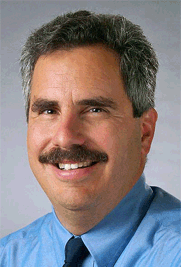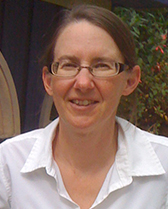CIRTL Launches MOOC-Supported Learning Communities to Train Future STEM Faculty
December 3, 2013

Bob Mathieu
The Center for the Integration of Research, Teaching, and Learning (CIRTL) has received a National Science Foundation grant to launch two massive open online courses (MOOCs) aimed at the group’s core mission of preparing graduate students and post-doctoral fellows to be future faculty who are both excellent researchers and excellent teachers.
The NSF awarded the three-year, $750,000 Widening Implementation and Demonstration of Evidence-Based Reforms (WIDER) grant with the goal of increasing the use of evidence-based teaching and learning practices of science, technology, engineering and math (STEM) faculty members at institutions of higher education. CIRTL’s successful proposal will leverage its national network of research universities to prepare future faculty in STEM disciplines to use evidence-based, high-impact instructional practices with their students.
“CIRTL has been advancing effective teaching practices and professional development for STEM graduate students for 10 years. We’re taking what we’ve proven to work and putting it into a new environment for even broader impact,” said Kitch Barnicle, CIRTL’s project manager and a co-PI on the grant.

Kitch Barnicle
CIRTL was established in 2003 at three universities, led by the University of Wisconsin-Madison. The CIRTL Network now includes 22 members located across the country, with the Wisconsin Center for Education Research (WCER) serving as the administrative home.
The first MOOC, scheduled to launch in the fall of 2014, will focus on the fundamentals of evidence-based practices for undergraduate teaching and learning. Specific topics will be decided after receiving input from experts across the CIRTL Network, but according to Barnicle are likely to include: learner-centered teaching and learning practices drawn from discipline-based education research; information-access skills allowing future faculty to stay abreast of advancing knowledge; skills for fostering active and collaborative learning activities, such as problem-based teaching, peer instruction and learning communities; formative and summative classroom assessment strategies, including existing instructor-friendly instruments such as the Student Assessment of Learning Gains; and techniques for creating inclusive learning and learning through diversity.
The second MOOC will aim for a more comprehensive examination of evidence-based teaching and will look into specific methods and strategies for gathering and analyzing data on student learning.
Both MOOCs are planned as six-week offerings. CIRTL will offer them for free.
In conjunction with the MOOCs, CIRTL will organize local discussion and study groups for class participants in the university communities within the CIRTL Network. Barnicle said she expects that more of these “MOOC-supported learning communities” will crop up on their own in additional locations around the country and the world.
“What’s nice about organizing these MOOCs through the CIRTL Network is that we have faculty across the network devoted to teaching and learning who will nurture these learning communities. We expect them to pop up all over the place,” she said. “We’re hoping the online course will allow students to engage with people from around the world, while the local groups connect them to classmates from their own campus.”
Barnicle said she anticipates that the information-sharing process will work in both directions – not only does CIRTL hope to pass on vital skills to a population composed heavily of STEM graduate students and post-docs, but the organization also plans to collect feedback from the local groups as to the effectiveness and utility of the MOOCS. CIRTL researchers at UW-Madison will play a leading role in evaluating the courses.
All of the MOOCs will be open-sourced, so that STEM faculty can draw from them to create their own flipped classrooms or otherwise introduce blended learning into their own courses. Giving such customizability to the course also will allow researchers to study what components were changed and how and why they were altered, Barnicle said.
In addition to the research component, the MOOCs represent a great opportunity for CIRTL because they allow the group to tackle a persistent problem with its programming: capacity. With a maximum capacity of about 20 students, CIRTL’s traditional online courses often face demand that far outpaces the group’s available offerings. Barnicle said CIRTL is using the MOOCs as a pilot that, if successful, will lead the organization to move more of its online coursework to an open enrollment format.
“Since MOOCs first broke onto the scene, they’ve been of interest to us as a solution to address capacity issues within our network,” Barnicle said. “This grant, by pushing us to take advantage of new teaching techniques and new technology, will allow us to increase our in-network capacity and eventually, to reach beyond the network to an even larger body of prospective future faculty.”
The end goal – and the aspect of the project that excites her most – is the potential to give future faculty the resources they need to improve undergraduate STEM education, Barnicle said.
“Graduate students and post-docs have a lot on their plates, and developing teaching skills often gets relegated beneath research,” she said. “We hope and believe these MOOCs provide a flexibility that will lower the barrier of access to professional development on teaching.”
The primary investigator on the grant is Rique Campa, of Michigan State University. Aside from Barnicle, other co-PIs include Derek Bruff, of Vanderbilt University; Bennett Goldberg, of Boston University; and UW-Madison’s Robert Mathieu, who is also CIRTL’s director.
“I think this work has the potential to be a transformative new dimension for accomplishing our mission, both on our campuses and more broadly,” Mathieu said. “We’re looking at this as just the beginning. Online education is here to stay, in one format or another, and reaching as many future faculty as possible is a key part of our mission. It’s exciting to be on the forefront of these changes in higher education.”


